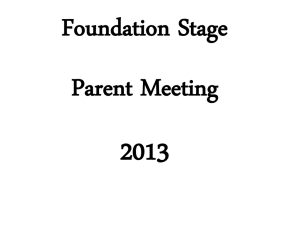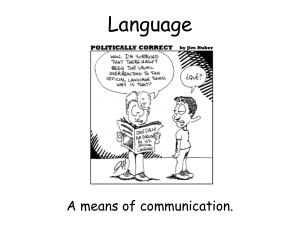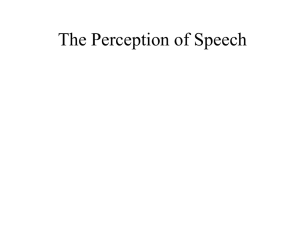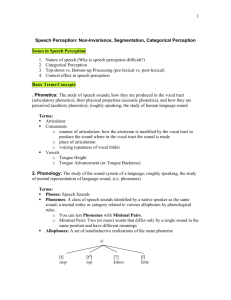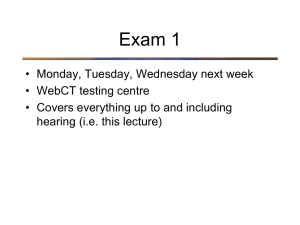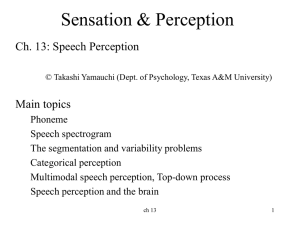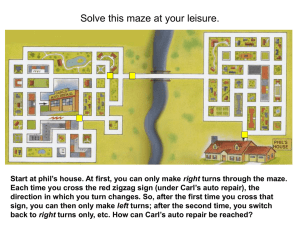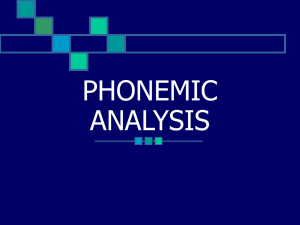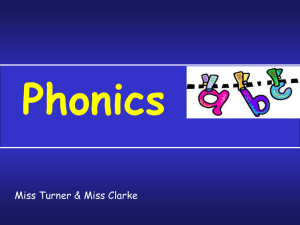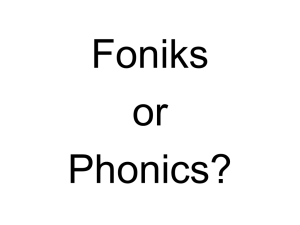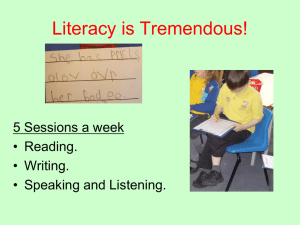Speech Perception
advertisement
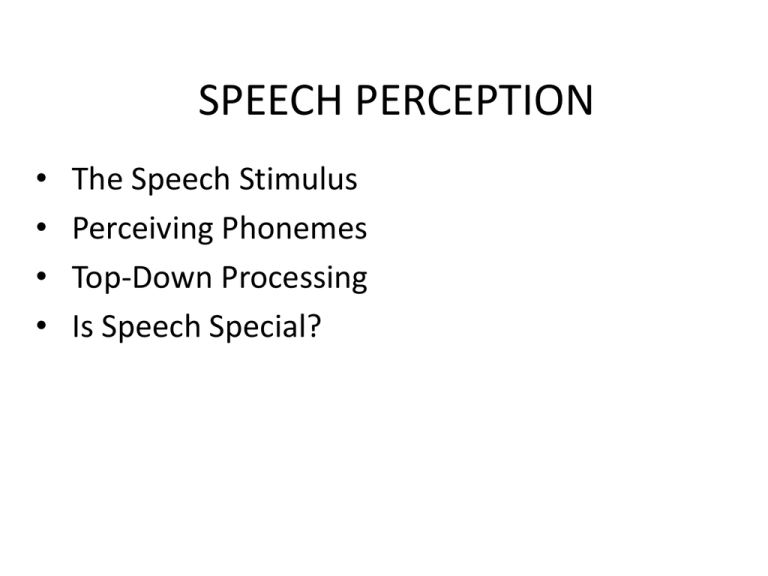
SPEECH PERCEPTION • • • • The Speech Stimulus Perceiving Phonemes Top-Down Processing Is Speech Special? The Speech Stimulus • Spoken words are composed of phonemes • phoneme: smallest unit of speech that affects the meaning of a word The Speech Stimulus: Articulation • vocal tract open or closed: vowels are produced with the vocal tract open • voicing: vibrating of vocal cords • place of articulation: point at which airstream is blocked • manner of articulation: degree to which airstream is blocked Analyzing The Speech Stimulus • sound spectrogram - graph showing intensities of various frequencies over time • formants - bands of high intensity frequencies in vowel sounds • formant transitions - shifts preceding or following formants; carry information about consonants Perceiving Phonemes • variability problem: acoustic properties of phonemes change depending on – context (coarticulation) – speech rate – speaker – loudness Perceiving Phonemes • segmentation problem: there is often no clear separation between one phoneme and another Perceiving Phonemes • categorical perception: phonemes are perceived as categories; many different sounds can be perceived as within the same phonemic category Top-Down Processing of Speech • phonemic restoration effect: listeners perceive a phoneme even when it is deleted and replaced by noise • demonstrates effect of context on speech perception Top-Down Processing of Speech • McGurk Effect: phoneme perception is affected by visual cues about lip movements • demonstrates effect of visual information on speech perception Top-Down Processing of Speech • The problems for speech perception are general perceptual problems, such as constancy • Similar top-down processing strategies might be used (e.g., Gestalt heuristics) Top-Down Processing of Speech • indexical characteristics - characteristics of a person’s voice that carry information about – Age – Gender – Emotion – Region – Intent Is Speech Special? • According to the “Speech is Special” hypothesis, we have a speech module: specialized abilities for perceiving speech • Motor theory: the speech module contains knowledge of how phonemes are produced; we use this knowledge for speech perception Is Speech Special? • Left hemisphere specialized for language – Broca’s area - damage causes Broca’s Aphasia – Wernicke’s area - damage causes Wernicke’s aphasia • Categorical perception of phonemes Is Speech Special? • Although locations in the left hemisphere are important for speech, specific brain areas are important for other perceptual abilities as well • Categorical perception of phonemes does not require a speech module because: – Infants show categorical perception of phonemes – Quail and chinchillas also show it – Non-speech sounds can be perceived categorically
